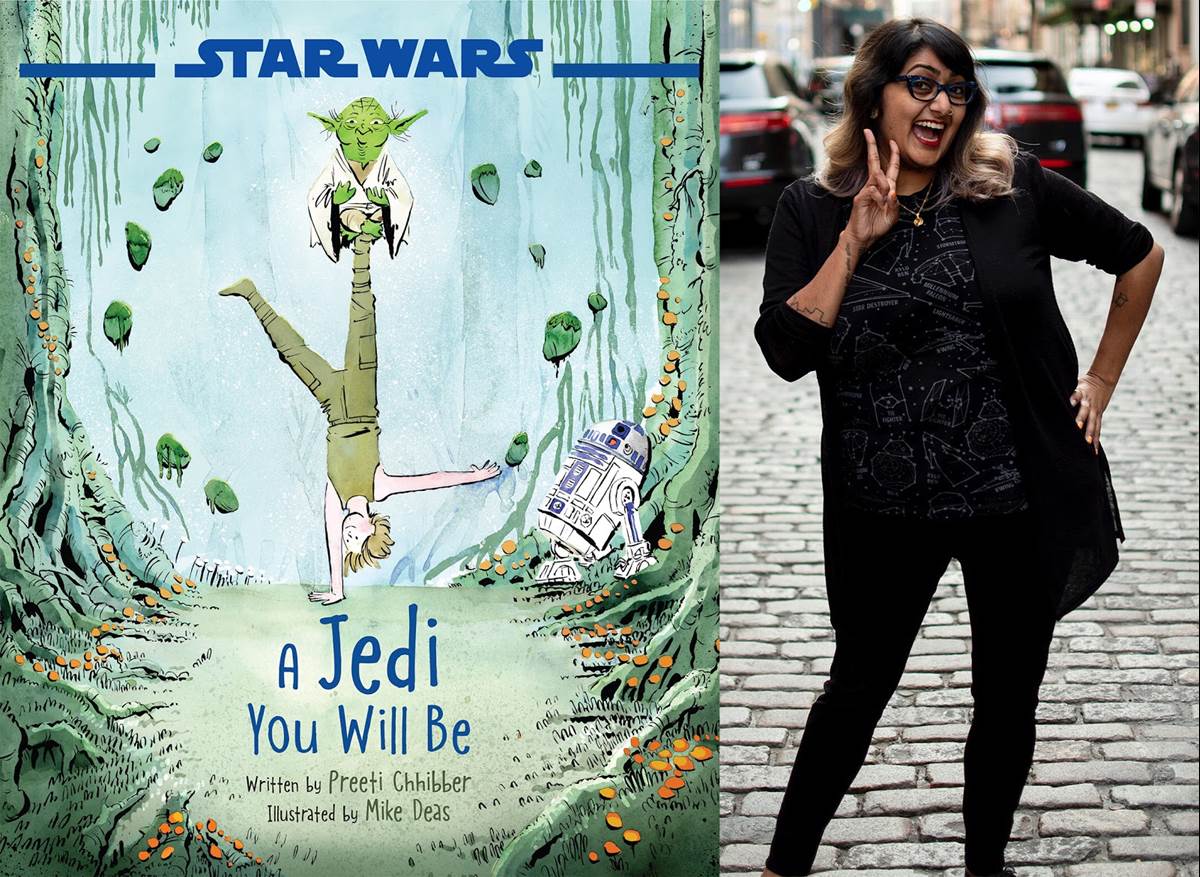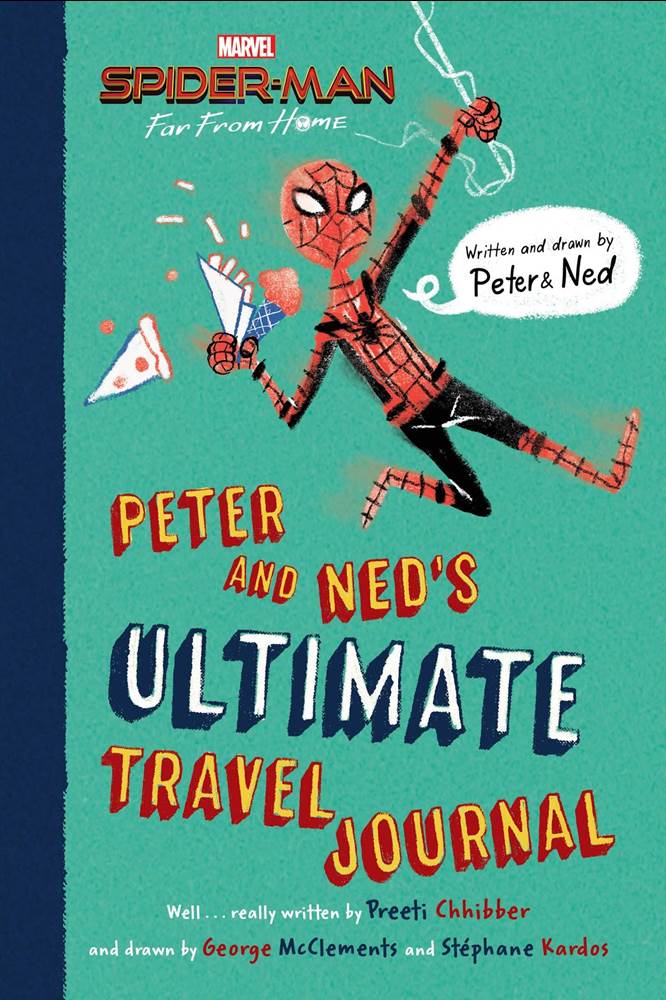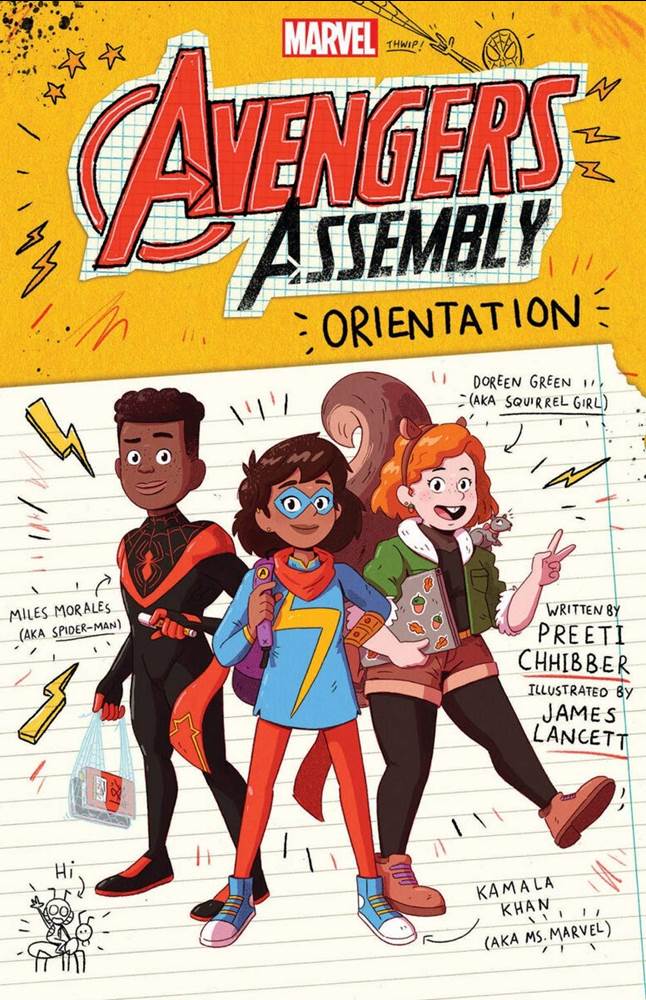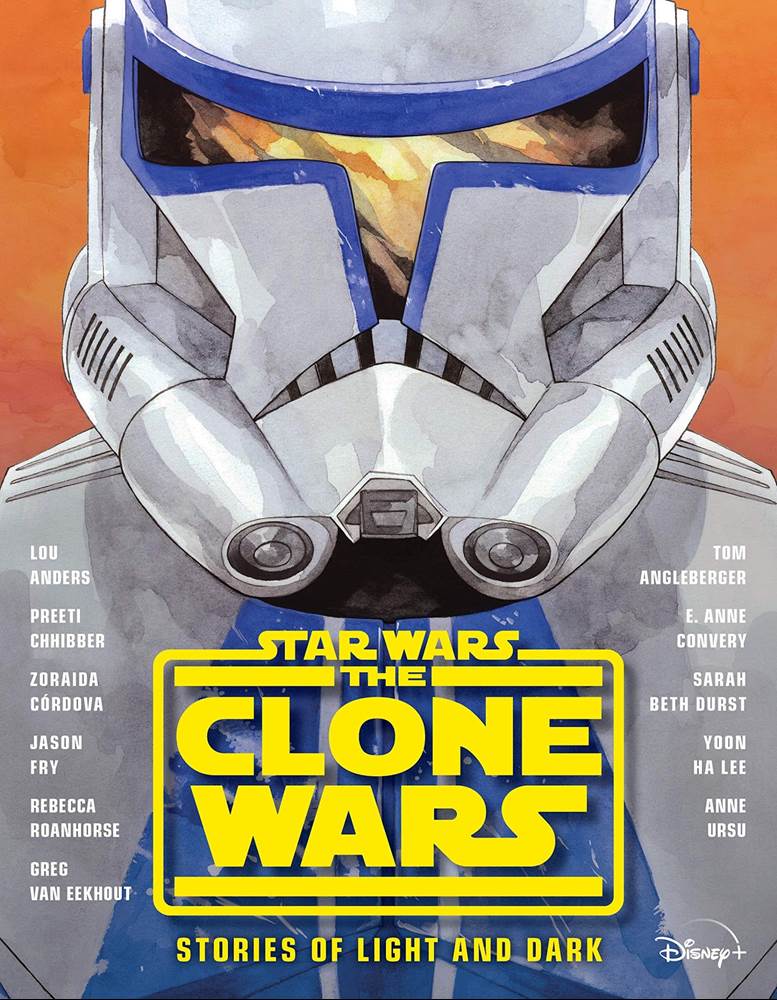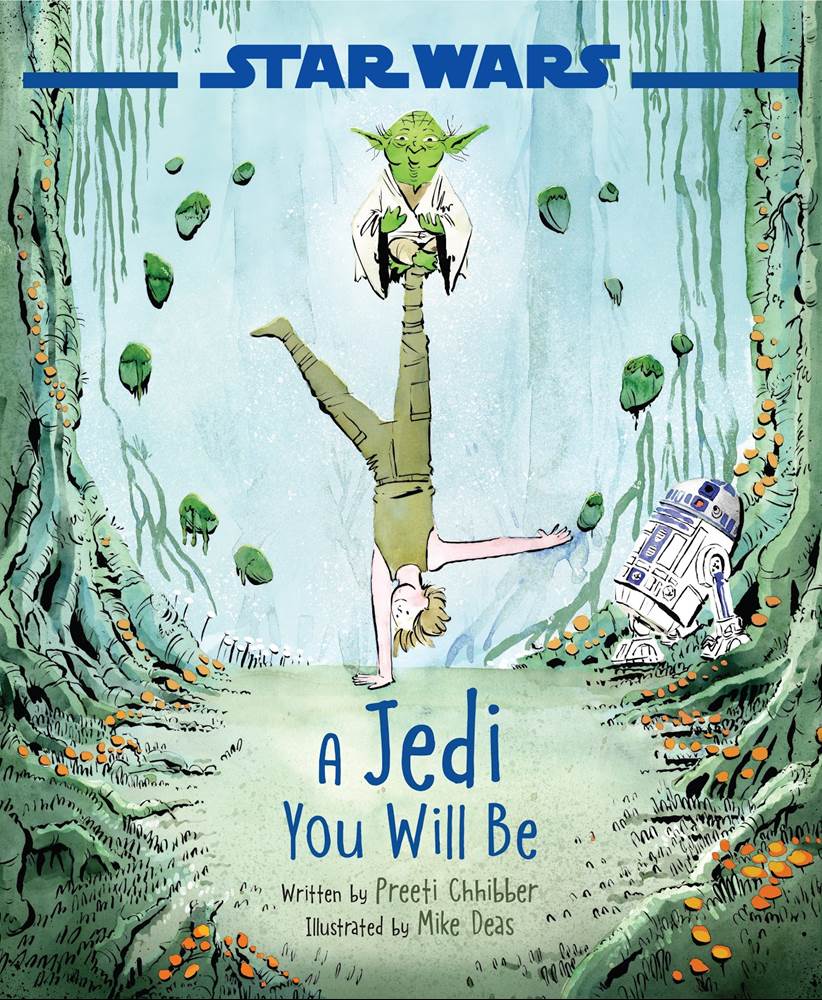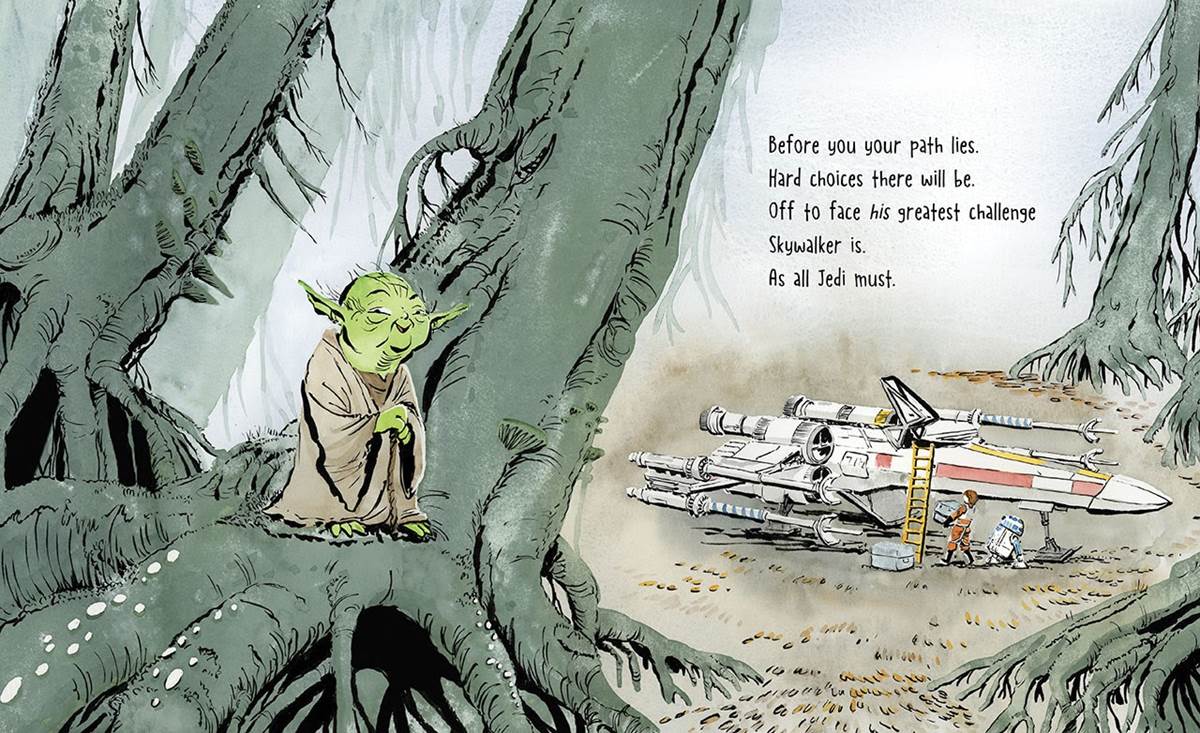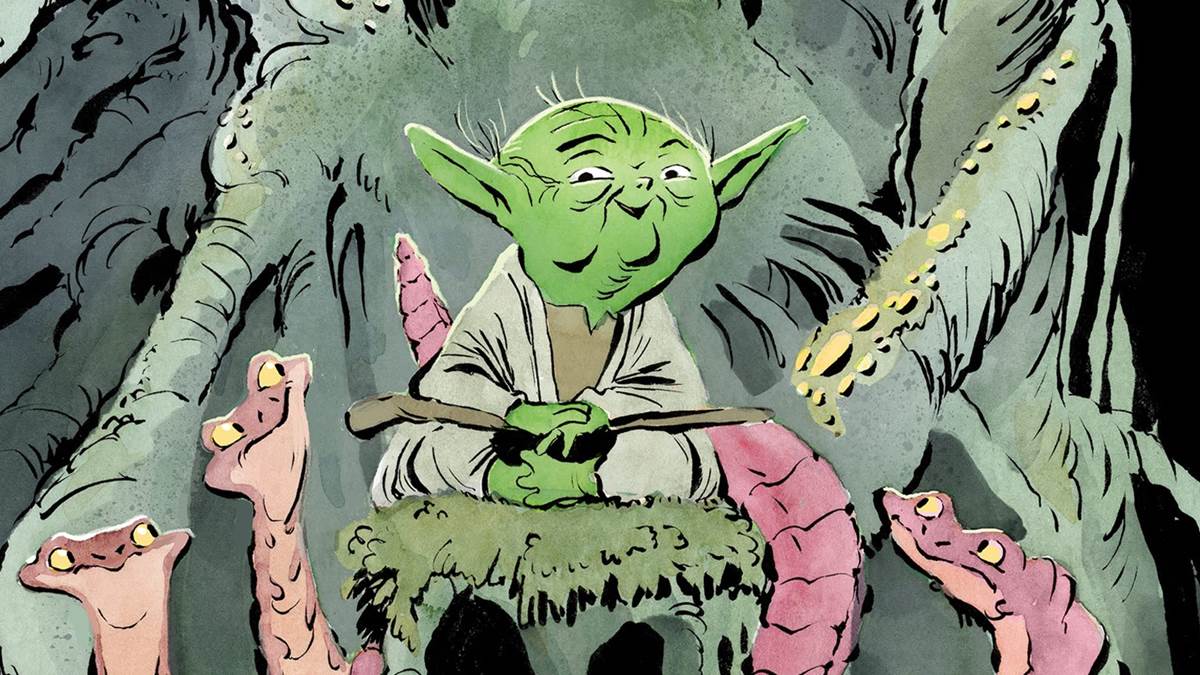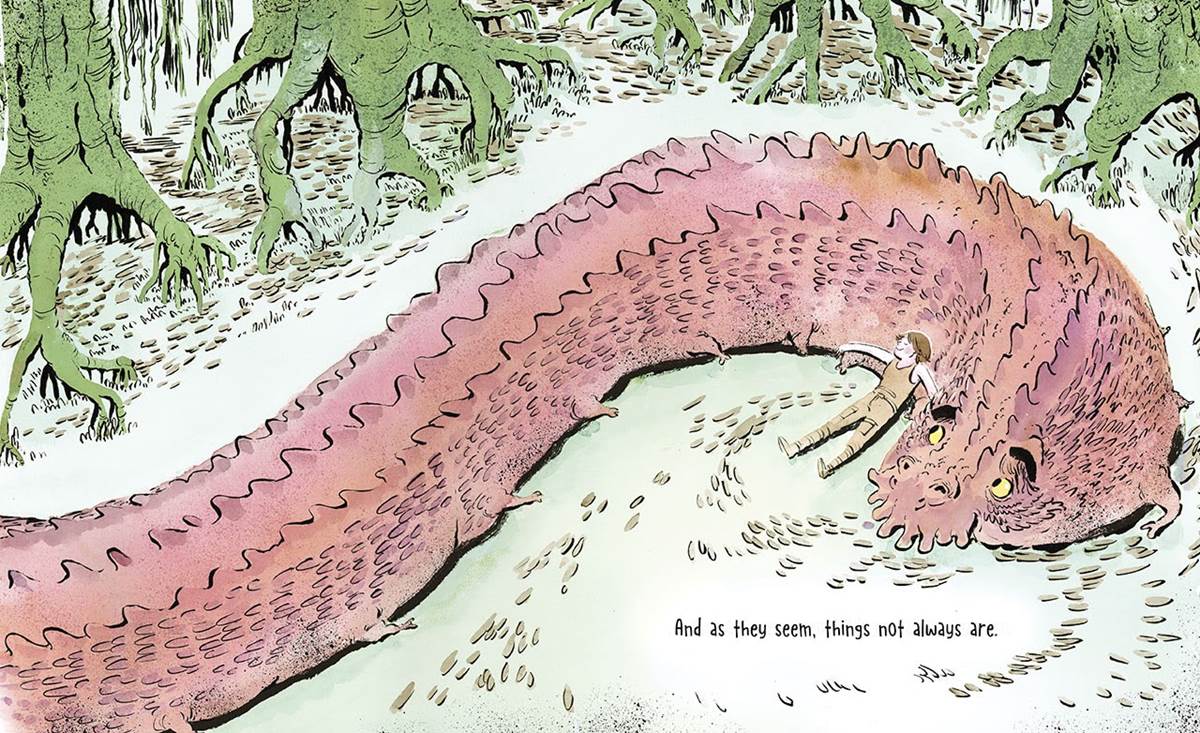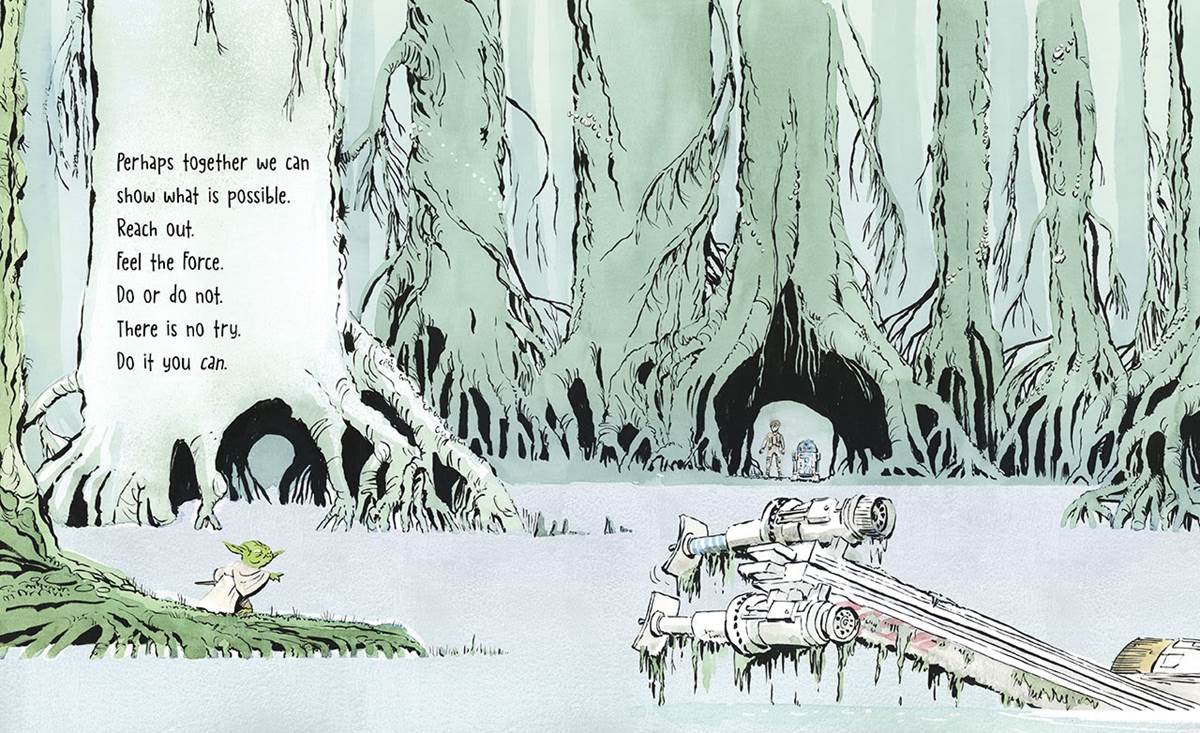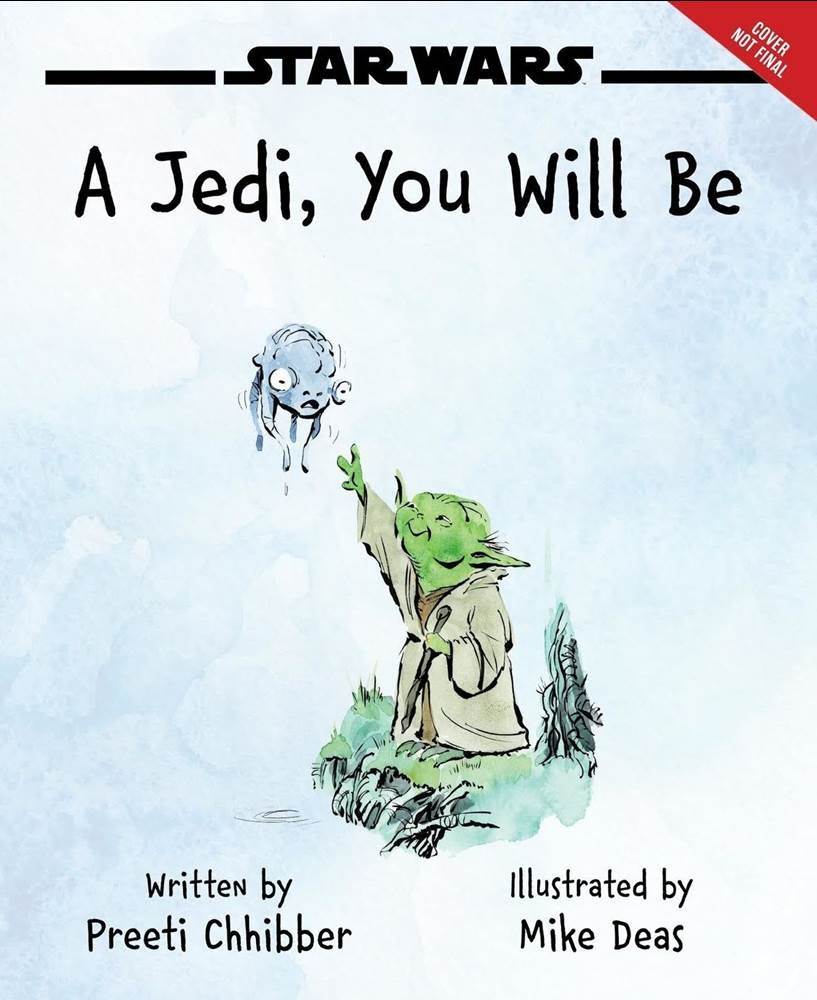Interview – Author Preeti Chhibber Discusses Her New Children’s Book, “Star Wars: A Jedi You Will Be”
Author Preeti Chhibber’s new children’s picture book Star Wars: A Jedi You Will Be is already flying off the shelves into the hands of parents looking for an appealing way to introduce their kids to A Galaxy Far, Far Away.
In a telephone interview recorded this week ahead of the book’s release, I spoke with Chhibber about her path to becoming a professional writer, her love of Star Wars and Luke Skywalker, and what lessons kids can expect to take away from A Jedi You Will Be.
Mike Celestino, Laughing Place: What was your relationship like with Star Wars growing up?
Preeti Chhibber: I mean, it’s one of my favorite things in the world. It has always brought me such joy and it’s one of those things that has been sort of ever-present in my life. I have an older brother, my mom is a huge nerd. It’s just always been there. I have no recollection of seeing the movies for the first time, just that I’ve always had them.
LP: What made you interested in becoming a writer and how did you achieve that goal?
Chhibber: I actually worked in children’s publishing for a very long time. I wrote when I was younger, in high school, for fun. And then I fell into publishing, because I was always a big reader. I interned at Tor Publishing and then came to New York after I graduated college to get into the business. I went to hear an editor speak once, and they were like, ‘You need to decide if you’re a writer or an editor.’ And I was like, ‘Well, I want to be an editor, so I guess I can’t be a writer,’ which is terrible advice, by the way. Don’t listen to that. [laughs]
Then in 2016 or 2017 another writer, Ellen Oh, who I’d worked with on some “We Need Diverse Books” initiatives that she co-founded, emailed me and was like, ‘Do you want to contribute a short story to this anthology I’m putting together of retellings of Asian myths?’ and I was like, ‘Sure, yes!’ That brought back that great joy of writing I had and the fun of it, and then I just started being like, ‘How can I do more of this?’ Because I was writing on the side in a pop-culture media criticism sort of way with Book Riot and [its] comics offshoot Panels.net, which is now defunct. That’s how [I] came back to being a writer, which is great.
LP: How did you get into writing for Marvel Press with Spider-Man: Far from Home - Peter and Ned’s Ultimate Travel Journal?
Chhibber: I’m a huge Spider-Man fan, in tandem with Star Wars. Peter Parker is one of my favorite characters, so I’ve written a lot about Spider-Man online. I think back in 2014 or 2015 I was like, ‘Someone hire me to write a Spider-Man book! Please!’ [laughs] And then I had guested on a podcast in which Brandon Snider-- who’s also a Marvel writer-- had guested, and then a few years later he sent me an email and was like, ‘You’re gonna hear from Marvel soon about an opportunity.’ And I assumed that he meant a press opportunity because I was doing interviews at that point on the media side.
Then I got the email from Marvel that was like, ‘We’re looking for someone to write a Spider-Man book’ and I was like, ‘Oh my god.’ [laughs] But I was able to send back all these clips where I had written silly, funny posts about Spidey and Peter Parker and Spider-Man: Homecoming for Syfy. They liked my tone and they liked the energy I had, so they were like, ‘We would love for you to write this book.’ That was how it happened.
LP: And what about Avengers: Assembly - Orientation? Tell me about that one.
Chhibber: This is a book for Scholastic, actually. Scholastic and Marvel have a partnership, and it’s [targeted] a little bit younger than what Peter and Ned’s Ultimate Travel Journal was. It’s pretty solid early-middle grade, and this is not tied to a movie or anything. This is Kamala Khan, Miles Morales, and Doreen Green attending an after-school superhero program, basically. It’s heavily illustrated by James Lancett, and it’s another thing where I’ve always been very vocal about my love of Kamala Khan and how excited I was to see a character who had a similar upbringing to mine-- first-generation-born South Asian. Of course, there are differences: she’s Pakistani-American, I’m Indian-American, but it was a similar-enough journey that I thought it was just really exciting for this character to exist.
One of the editors at Scholastic, where I used to work, reached out to me and was like, ‘We want to do this thing. Would you be interested in writing a few books about these characters and what this silly after-school program could look like?’ So I got to come up with what the story was and what issues these kids were going up against within this construct. It’s a coming-of-age superhero story. Coming-of-age is one of my favorite themes, so that was really cool. I have a second one coming out in the spring.
LP: Getting back to Star Wars, let’s talk about The Clone Wars: Stories of Light and Dark. What I’m most curious about is why you chose the particular story you contributed, or whether that was Lucasfilm’s suggestion.
Chhibber: I had a meeting at San Diego Comic-Con last year. Jen Heddle, who is in editorial at Lucasfilm, was like, ‘Do you want to meet about some potential projects?’ And I was like, ‘Oh my god, yes. Obviously, yes. I would love to meet, thank you.’ [laughs] So we met, and she pitched this idea for the Clone Wars anthology, and I’m a huge Clone Wars fan. I think what Dave Filoni did with that series was really fill out what is one of the most compelling aspects of Star Wars, which is the tragedy. I love the tragedy of Star Wars so much, so I was absolutely immediately interested. After the meeting, I got back to my computer and I emailed her: ‘If we’re doing this, I want to write Anakin. That’s who I want to write. So I beat a lot of other people. I know there were other people who wanted to write Anakin, but I got in there first, so I got to do it. [laughs]
I sent her a few potential stories. I love the idea of Force lore, so I was interested in the Force-centric episodes, especially the one on the mysterious planet [Mortis]. I love Anakin’s perspective of when he thinks Obi-Wan has died; I love [that] series of episodes. But one of the things I love most about Clone Wars is how it really builds up the romance between Padmé and Anakin, so “Hostage Crisis,” which I think is one of the most exciting and romantic episodes. That was the one that I settled on. I was like, ‘I would love to write about how much Anakin loves Padmé, but also the seed of where that love falls on the wrong side of the fence and how you can see how he doesn’t quite know how to balance it.’
LP: That brings us to Star Wars: A Jedi You Will Be. What was your process of coming up with the idea and writing this children’s book?
Chhibber: In that same meeting I had with Jen in July of last year, she mentioned her colleague Caitlin Kennedy was interested in talking to me about potentially writing a picture book, and I was like, ‘I don’t know about that. I’ve never written a picture book before.’ I mean, I worked in publishing a long time, so I’ve definitely worked on picture books. I know them and I know what goes into them. They’re not easy. I think there’s this very flawed perception that because picture books are so short, they must be so easy to write. But there’s an art to it, and so I never wanted to seem like, ‘Oh, I could do this. Whatever.’ I was pretty hesitant, but I had a conversation with Caitlin and she was like, ‘No, I really think you could do this. We want to do this Jedi training picture book for the 40th anniversary of Empire. It’s the scenes from [The] Empire Strikes Back but it’s all Yoda teaching you how to be a Jedi.’
And I was like, ‘Okay, that sounds fun and interesting, so yes.’ I love Empire, obviously. How could you not love Empire? And I love the training sequences so much, because I’m a Luke girl through and through. [laughs] It’s so much Luke Skywalker. And so I watched those scenes like eight million times. I kept watching them and I created a list of what I call ‘the tenets’ of Yoda’s Jedi training. It was 15-20 tenets and [I was] trying to shape a narrative around that, and [conceptualize] how you would tell that story to little kids three to eight years old, and make it important and compelling enough for them, but also get at the heart of what the Force is and what it means to be a Jedi. That was a really exciting proposition, because I do think there’s a lot of really wonderful things to learn from the concept of the Force.
LP: In addition to utilizing the tenets of Yoda’s teachings from The Empire Strikes Back, you also pulled from little tidbits of his knowledge from the prequel trilogy and even The Last Jedi. How did you decide which parts of the Star Wars saga to draw from?
Chhibber: For me it was always about in general what I want kids to pick up from the Force. I think one of the most important things about the Force is this notion of ‘our impact matters.’ We will always have an impact on the world around us, on the people around us, and we should always be cognizant of that impact. So making sure that those pieces were in the book regardless of where the teaching came from [was important to me], because that is a consistent teaching throughout the entire series. That was where I was-- it started with what I wanted to make sure was getting across and then pulling the information from wherever it was.
LP: Can you expand on what makes Luke’s training on Dagobah a good entry point into Star Wars for the younger kids who are the target audience of this book?
Chhibber: I think for kids, part of what’s so wonderful about this book is Mike Deas’s illustrations, and what an incredible job he did in bringing to life-- in this very comforting way-- what can be quite scary when you’re very little. In the films, it’s very dark and there are these harsh contrasts between the light and the dark. So what Mike Deas did was bring it down to a very soft, inviting place with his colors and his expressions that he’s given to Yoda and to Luke, and to R2, even. I think because in its core it’s about teaching and it’s about aspiration, that’s what’s so exciting for little kids about this. It’s literally in the title: A Jedi You Will Be.
If you read through this, you can get on that path to being a Jedi Knight, which is when you’re playing and you’re thinking about Star Wars as a five, six, seven-year-old, it’s like, ‘I want to be the good guy. I want to be the Jedi. I want to hold the lightsaber. I want to be Luke Skywalker.’ This book is kind of being like, ‘This is how you do it,’ but it’s still very honest in terms of what’s so great about that training sequence: Luke does go through these highs and lows-- having to deal with fear and anxiety and failure, but it’s not about that failure. It’s about working as hard as you can because you will do it. It’s that affirmation of, ‘Even if you feel as though you’re failing, you can do it.’
LP: Speaking of Mike Deas, how did you get partnered with him for this book?
Chhibber: That was entirely Lucasfilm. I remember when Caitlin, the editor, was like, ‘We’re thinking about going in this direction. These are the samples of this guy Mike Deas. And I looked at them; she sent over a few shots of these beautiful watercolor illustrations of Yoda-- this little old man grandpa Yoda. I was like, ‘This is the cutest thing I’ve ever seen in my life.’ It was just so soft and pretty and I was obsessed. I was like, ‘If this is not the guy, I’m gonna be so disappointed.’ [laughs] So luckily it worked out, because I would have been super bummed if they had not gone with him.
LP: I noticed that in collaborating on this book, you and Mike have created a few new creatures that haven’t been seen previously on Dagobah. What was it like contributing to the Star Wars canon in that way? Do these creatures have names?
Chhibber: [laughs] I have not named them. I guess we should. I know at least one of them-- the big reptilian-looking thing-- is actually from another middle-grade book. Mike actually told me [that]. I wasn’t aware. [With] the very little cute ones, my note was ‘little creature goes here. I think he looks like a quokka.’ [laughs] Those were the level of notes I gave Mike, and then he came back with this really cute little alien that looks like a quokka, which I think is so inviting. That was very cool to get to contribute.
One of the most exciting things about writing Star Wars is getting to contribute these tiny little slices of canon. What’s so interesting about the Star Wars that exists today is how big it is, and how you have this mass storytelling on a level that has not necessarily been achieved in a lot of spaces. Getting to contribute just a really small piece of that is very cool, because you never know where that thing is going to show up next and how that thing will be used by another creator. It’s a very exciting prospect.
LP: We also get a couple flashbacks to other Jedi adventures from the Clone Wars and the prequels. How did you guys decide which parts of the Star Wars universe to depict in that way?
Chhibber: That was a moment when Yoda is talking about ‘Wars not make one great’ and this notion of fighting. Something I love about having all this extended media within Star Wars with Clone Wars or Rebels or whatever it is, is how it recontextualizes a lot of the Original Trilogy and how it gives meaning to things that we just had a small grasp of in our initial viewings of the original films. Now when you think about Yoda talking to Luke, it is fully contextualized within the prequels and all of the adventure and heartbreak that existed within Anakin’s story and Yoda’s participation in Anakin’s story. I wanted to be sure to get across some of that, and so I said in my notes, ‘Yoda has this dialogue, but in the sky you see battles from previous films and series like The Clone Wars and the prequels to show the breadth of what that is.’
LP: What do you feel is the lesson that young readers should take away from A Jedi You Will Be?
Chhibber: I think it’s two things: [the first is] it’s okay if you can’t do the thing right away, is one thing. You will do it. You will. It just might take time. It might take different effort; it might take different energy. And [the second is] that your impact matters, and what you do will always have an effect on the world and the people around you, and to be considerate of that. Those are the two big things that I hope readers take away, because I think those are the two most important aspects of that training sequence for young people.
LP: As a follow-up to that, why do you think it’s important to get kids interested in Star Wars?
Chhibber: ‘Important’ I think is the wrong word. I don’t know that it’s important, but I think it is an opportunity to tell stories that highlight the importance of trying, and recontextualize the notion of trying, because I think that’s what Yoda does when he says ‘Do or do not; there is no try.’ It’s not saying that if you fail, it’s not worth doing. It’s more, ‘If you do it, it’s not trying.’ That’s kind of shifting our notion of what that means and the notion of commitment, and so I think there’s opportunity in the story of Star Wars for young people to learn a lot of lessons about what it means to be good and what it means to remember that you are a piece of the puzzle and not the whole.
That’s where I think there’s a lot of wonderful aspects of storytelling within the Star Wars universe that could help a lot of kids find their way. There’s so much good story in the world, and I think that’s the benefit of good story-- what it can help us become as young people growing into adulthood. How stories shape us matters, and I think there’s a lot of really exciting good work being done within the Star Wars universe from really wonderful creators that can benefit young readers immensely. So it’s less about the importance, and more about the opportunity there.
LP: What has been exciting for you, as a fan, coming out of Lucasfilm and Star Wars lately? Which stories have you most connected with in publishing, TV, or film?
Chhibber: I think the four seasons of Rebels are perfect storytelling. The way that story was told in terms of all of those characters and how it fits in in the universe as a whole is just so good. It’s such strong writing. But also on the publishing side, something that Lucasfilm Press has been very thoughtful about is who gets to tell these stories. I know they’ve made a concerted effort to make sure that there are people telling Star Wars stories who traditionally have been left out of the sci-fi / fantasy genre space. Last Shot by Daniel José Older I think is incredible. Zoraida Córdova I think is amazing, Justina Ireland I think is amazing. All these people who are getting to tell stories who didn’t get to be a part of the building of this franchise, who now get to create some of the most exciting spaces within the franchise.
LP: Lastly, what can we expect from you next and would you ever like to return to the world of Star Wars storytelling?
Chhibber: I mean, yes. I’m telling everyone, ‘I will write so many more Star Wars books. Whatever you want, I’ll do it. Just lemme at whatever character it is.’ [laughs] My next book is the second book in the Avengers: Assembly series. It’s called The Sinister Substitute and it comes out in April, I believe. And then I’m part of two anthologies that are forthcoming: one is a Battle of the Bands anthology, which is in fall of 2021, and then an anthology I’m very excited about that I don’t even think has a release date. It is a retelling of Arthurian legend. It’s super exciting. I don’t think I’m allowed to actually say anything about it, but there are incredible authors attached and the stories are going to be so good.
This interview will be featured in audio form as part of Laughing Place’s weekly Star Wars podcast Who’s the Bossk?
Star Wars: A Jedi You Will Be is available now wherever books are sold.



